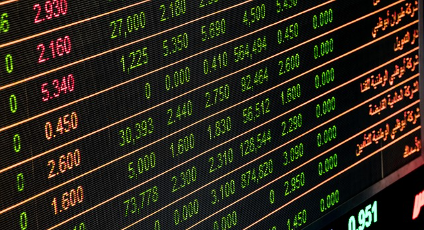현재 장바구니가 비어 있습니다!

[2024-08-07 Korea Economic News] Historic Crash: Tokyo Stock Market Set to Surpass Black Monday
The Historic Plunge in the Tokyo Stock Market: A Closer Look
In recent days, the Tokyo stock market has witnessed an unprecedented decline, one that has sent shockwaves across global financial systems. The Nikkei 225 index experienced a staggering drop of 4,451.28 points, resulting in a decline of 12.40% and closing at 31,458.42. This marks the most significant fall since Black Monday in October 1987, when the market plummeted by 3,837 points or 14.9%. This article delves into the factors contributing to this historic plunge, particularly focusing on concerns over a potential recession in the United States and the strength of the yen.
![[2024-08-07 Korea Economic News] Historic Crash: Tokyo Stock Market Set to Surpass Black Monday](https://walterlog.net/wp-content/uploads/2024/08/1700287519.1054323-5.png)
The Impact of U.S. Economic Recession Fears on the Tokyo Stock Market
Concerns over a looming recession in the United States have been a significant driving force behind the Tokyo stock market’s recent turbulence. As the world’s largest economy struggles with inflation and economic indicators suggest a slowdown, the ripple effects are being felt as far away as Japan.
Many investors are opting for risk-averse strategies, which has led to decreased investments in stocks, particularly in markets like Japan that are closely tied to U.S. economic performance. This diminishment of investor confidence has direct implications for the Tokyo stock market, exemplifying how interconnected global economies have become in the face of uncertain economic conditions.
Korea Economic News reported that the fear of recession is making investors wary, leading to a sell-off of stocks across the board, as seen in the significant drop in the Nikkei 225 index. This anxiety about economic conditions has also caused volatility in currency markets, notably resulting in a stronger yen.
![[2024-08-07 Korea Economic News] Historic Crash: Tokyo Stock Market Set to Surpass Black Monday](https://walterlog.net/wp-content/uploads/2024/08/1700287545.0388653-1.png)
The Strengthening Yen: A Double-Edged Sword
The current trend of yen strength is another crucial aspect impacting the Tokyo stock market. While a strong yen might appear favorable for Japanese consumers and importers, it has adverse repercussions for exporters, which constitute a substantial part of the Japanese economy. Companies that rely heavily on exports, such as automakers and electronics manufacturers, are now facing decreased competitiveness in global markets, leading to declining stocks, which further exacerbates the struggles of the Tokyo stock market.
Recent reports from Korea Economic News have highlighted that the yen’s strength is contributing to declining corporate profits, as goods priced in yen become more expensive for foreign buyers. This scenario leads to a negative feedback loop for the stock market, prompting further investor pullback and a decline in stock valuations.
![[2024-08-07 Korea Economic News] Historic Crash: Tokyo Stock Market Set to Surpass Black Monday](https://walterlog.net/wp-content/uploads/2024/08/1700199883.6419833.png)
A Historical Context: Comparing to Black Monday
Reflecting on Black Monday, we find that history has a tendency to repeat itself in the financial sector. The sheer scale of the recent drop in the Tokyo stock market brings to mind the events of October 1987, where panic selling led to a dramatic fall in stock prices worldwide. The plunge of over 4,451 points is reminiscent of that historical day and signals a potential crisis in market confidence not only in Japan but globally.
Korea Economic News has drawn parallels between the current situation and previous market downturns, emphasizing that although the specifics might differ, the underlying themes of fear and uncertainty remain constant. Investors are increasingly concerned about how prolonged economic slowdowns, particularly in significant economies like the U.S., can lead to similar effects seen in the past.
![[2024-08-07 Korea Economic News] Historic Crash: Tokyo Stock Market Set to Surpass Black Monday](https://walterlog.net/wp-content/uploads/2024/08/1699579612.4269886-1.png)
Looking Forward: The Path Ahead for the Tokyo Stock Market
As we move forward, the trajectory of the Tokyo stock market will heavily depend on several key factors, including U.S. monetary policy, global economic recovery rates, and the future performance of the yen. Investors are advised to stay informed and cautiously optimistic, as both domestic and international economic conditions evolve.
The economic landscape can be volatile, and while today’s news paints a bleak picture, fluctuations are part of market dynamics. It is crucial for stakeholders to absorb information from reliable sources like Korea Economic News to make informed decisions going ahead.
In conclusion, the Tokyo stock market’s recent decline is a powerful reminder of the intricate relationships between various global economies, particularly how fears of recession in the U.S. and currency fluctuations can dramatically influence market performance. Observers and investors should remain alert to these ongoing developments, as they will undoubtedly shape the market’s future trajectory.
![[2024-08-07 Korea Economic News] Historic Crash: Tokyo Stock Market Set to Surpass Black Monday](https://walterlog.net/wp-content/uploads/2024/08/1700288471.8463955.png)
For more information about the Tokyo stock market and its developments, visit here.